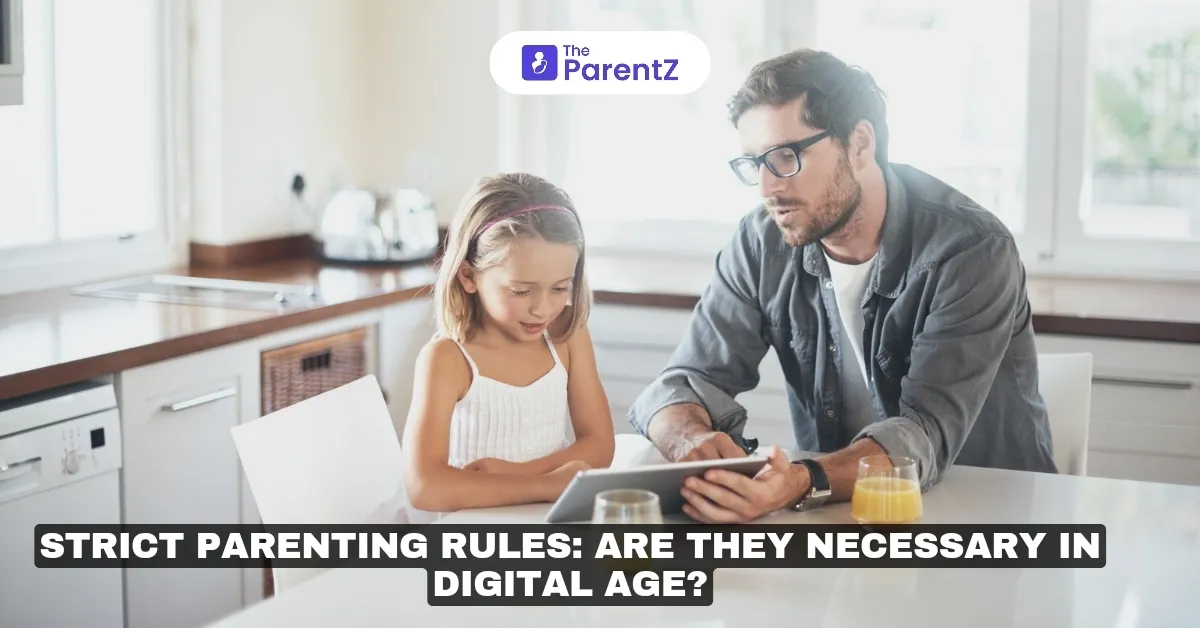Parenting in the digital age is like protecting your child against the forces pulling your kids in different directions. The main question that arises here is: are strict rules the need of the hour in this technologically hyperconnected world? Or should parents focus more on a flexible approach?
While strict parenting has its own pros when it comes to giving a sense of structure in dealing with the outside world safely, in a time where ‘play’ happens online and friendships are built over mobile, the strict parenting approach may seem outdated.
Of course, nowadays you can't tell your child to not use social media—it may seem like restricting them from connecting to an entire social world.
The other side to it is that without limits, screens can take over their lives.
Did you know, according to a latest study, teens spend an average of 7 hours and 22 minutes on screens every day, excluding homework? This staggering figure will indeed blow your mind. So, what’s the right parenting approach in this digital age? Read this article to find out more.
Strict Parenting In The Digital Age
Strict parenting does not always mean a complete breakdown of the freedom. It can also mean setting up clear boundaries for your child, such as specific screen time rules for younger kids. You can turn these rules into conversations about responsibility and self-control rather than just hard rules.
This way, strict parenting can prove to be very effective. After all, in this world loaded with distractions, boundaries are indeed an essential aspect.
If your 10-year-old knows they get one hour of gaming a day and no more, the battle ends before it begins. And that’s worth something!
Digital Dilemmas: Is Flexibility The Need?
As your children grow, so should your parenting approach too. According to a survey, 77% of parents said they were concerned about the amount of time their teens spent online and found it challenging to maintain control. This proves that while strict parenting might work in some situations, it comes with limits too.
Therefore, it's more important to coach your child through their online interactions. Let them make small mistakes under your supervision so that they learn from their mistakes before the consequences turn too high.
Rules and Conversation: The Ultimate Balance
So, what’s the key to finding that perfect balance? The answer is to figure out and adjust to the parenting style as and when your child grows and matures. For young children, stricter rules around screen time, content, and behavior make sense since they still seek guidance. On the other hand, or teenagers, conversations about online behavior, digital boundaries, and self-control are important.
In short, strict parenting needs to evolve with the times. The next time your child makes a mistake, instead of bans or restrictions, introduce consequences and rewards for the good work. Making your children the part of decision-making lets them learn to be responsible instead of just being obedient. The end goal is to raise a self-sufficient child instead of a rule-follower.
Takeaway
While strict parenting can still hold water in this digital age, it still needs some changes. When it comes to parenting, the new trend is to blend traditional approaches together with digital wisdom to help your child surf through the online world, and there isn’t a generational gap. Flexibility has always been a key whenever adapting to a newer environment. So is the case here. Let your kids learn how to maintain boundaries and develop a sense of responsibility from an early age. A balance and awareness are what are needed to perfectly deal with this digital age safely.





Be the first one to comment on this story.